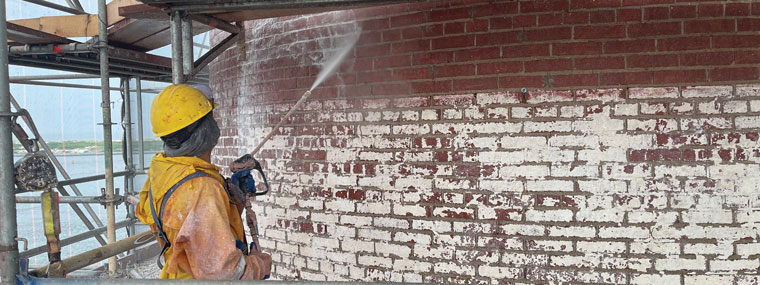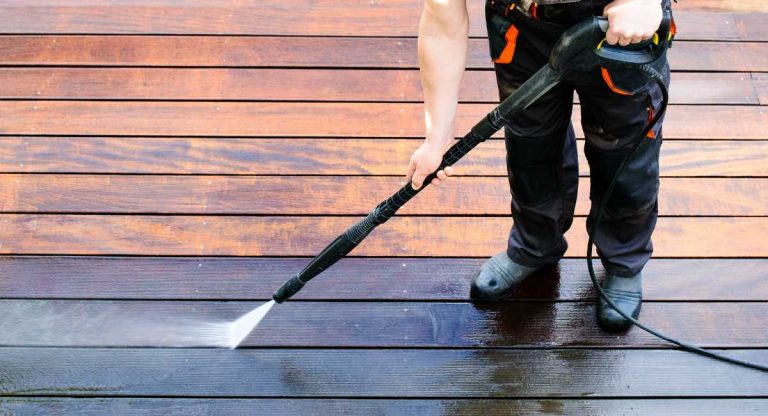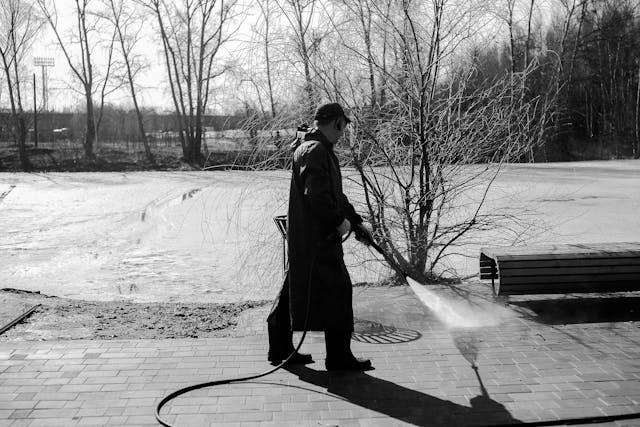
Historic homes and buildings are beautiful treasures — filled with architectural character, rich details, and stories that span generations. But they also come with unique maintenance challenges. 🧱✨ When it comes time to clean the exterior, a common mistake is hiring a standard power washing company without understanding the fragility and complexity of historic materials.
Power washing can absolutely help restore the beauty of older properties — but if done incorrectly, it can cause irreversible damage. That’s why it’s critical to hire a pressure washing service experienced with historic structures.
In this guide, we’ll walk you through everything you need to know to choose the right company and protect your investment. 🏡💧
🧱 Why Historic Buildings Need a Special Approach
Historic properties often feature materials and construction techniques that aren’t found in modern homes. For example:
- Soft or crumbling mortar between bricks
- Aged or porous limestone, stucco, or sandstone
- Original wood siding or hand-cut clapboard
- Decorative stone carvings or plasterwork
These features require a gentle, thoughtful cleaning approach, not a high-powered blast of water. Using standard power washing techniques could strip away protective coatings, erode mortar joints, or even crack delicate surfaces.
🚫 Risks of Using the Wrong Power Washing Service
Hiring the wrong contractor — one that uses too much pressure or harsh chemicals — can lead to:
- Water intrusion behind fragile siding
- Discoloration of historical stone or brick
- Erosion of detailed trim, cornices, or carvings
- Loosened mortar joints or brick spalling
- Damage to antique wood features or paint
Worse, once the integrity of a historical element is compromised, restoration costs can be extreme — and some features may not be recoverable. 😰
Browse Amazon Here For Top Power Washers And Accessories
✅ What to Look for in a Power Washing Company for Historic Homes
Not every contractor is equipped to handle heritage buildings. Here’s what to prioritize:
1. Experience with Historic Properties
Ask directly: “Have you cleaned historic homes before?”
Look for contractors who specialize in:
- Heritage sites
- National Register properties
- Old neighborhoods or preservation zones
🏆 Bonus if they’ve worked with preservation societies or museums.
2. Low-Pressure or “Soft Wash” Techniques
High-pressure jets can destroy soft materials. Instead, look for services that use:
- Soft washing systems (under 500 PSI)
- Hand cleaning for delicate areas
- Eco-friendly, non-abrasive detergents 🧼
🧽 Soft washing combines gentle pressure with special cleaners that break down grime without the risk of structural damage.
3. Custom Surface Assessment
The best companies will:
- Walk the property in advance
- Identify different materials (brick, stone, stucco, wood)
- Recommend surface-specific methods
- Provide a clear scope of work
💡 Red flag: If a contractor plans to treat all surfaces the same, move on.
4. Preservation-Friendly Cleaning Products
Ask what kind of detergents or chemicals they use. Look for:
- Biodegradable cleaners
- Non-acidic solutions for masonry
- No bleach or harsh solvents unless specifically approved
🛡️ The right products help preserve patinas, lime-based mortars, and aged finishes.
5. Insurance and Licensing
Always check that the contractor:
- Has proper liability insurance
- Offers workmanship guarantees
- Is licensed to operate in historic districts if required by your city
🧾 You may also need to obtain a permit for exterior work on protected buildings — a professional should help guide you through that process.
💬 Questions to Ask Before Hiring
Here’s a checklist of smart questions to ask:
- “Have you worked on buildings over 100 years old?”
- “What is your process for cleaning antique brick or wood?”
- “Do you use low-pressure or soft wash methods?”
- “What products do you use, and are they safe for historic materials?”
- “Can you provide references or photos from past historic projects?”
If they hesitate or seem unsure — trust your gut and keep looking. 🧠🚫
📍 What Areas of a Historic Property Can Be Safely Washed?
A properly trained power washing company can safely clean:
| Area | Cleaning Notes |
|---|---|
| Brick facades | Only with soft wash + non-acidic detergent |
| Stone walkways | Avoid aggressive scrubbing on sandstone or limestone |
| Painted wood trim | Low pressure only, check for lead paint first |
| Stucco | Often delicate — may require hand treatment |
| Columns & railings | Hand-cleaning recommended for detailed features |
⚠️ Important: If you suspect your home contains lead-based paint, you’ll need a contractor certified in EPA’s Renovation, Repair, and Painting (RRP) rule.
💰 Cost Expectations for Historic Property Cleaning
Because of the extra care and time involved, hiring a power washer for a historic home may cost more than a standard job. Expect:
- $300–$800+ for small homes
- $800–$2,000+ for larger, multi-surface jobs
- Add-ons for custom cleaning or handwork
🧼 The additional cost is worth the peace of mind knowing your home’s legacy is safe.
🏁 Final Thoughts
Your historic home is more than just real estate — it’s a piece of art, culture, and history. 🏛️ While power washing can bring out its best features, it must be done with delicate precision.
By hiring a contractor who understands the materials, construction, and significance of older homes, you’re not just cleaning — you’re preserving a legacy.
Choose wisely, and your home will continue to tell its story for generations to come. 💚






